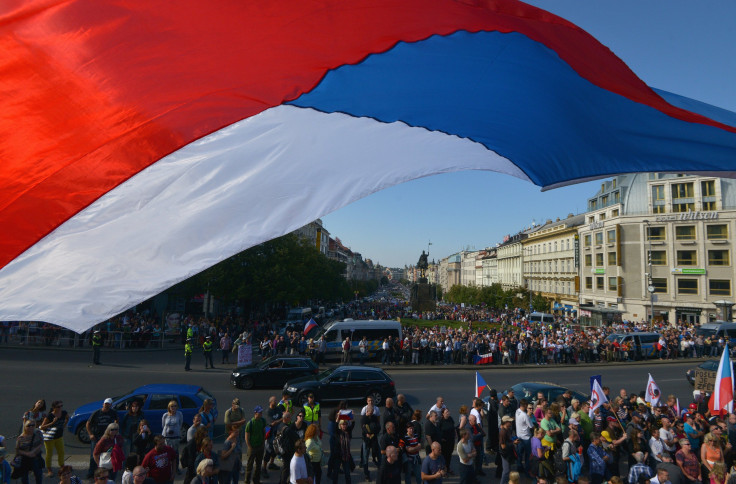Czech Republic Protests: Massive Anti-Government Demonstrations Expected Sunday In Prague

The Czech Republic on Sunday will stage its largest anti-government demonstrations since 1989, as hundreds of thousands are expected to gather in Prague in response to the country's billionaire Prime Minister Andrej Babis, who has been accused of a conflict of interest over EU funds.
Growing opposition to Babis has stemmed from the recent appointment of a new justice minister, who critics believe could undermine the Czech legal system and protect Babis from criminal charges.
"The opponents of Babis are certain that he is a threat for democracy," Josef Mlenek, an analyst at Charles University in Prague, said in a report by the Associated Press.
Earlier this month, over 120,000 protestors gathered in Prague's central Wenceslas square to demand Babis' resignation. The protests came after the released draft of a European Commission audit which said Babis had possibly used EU funding for his former agricultural business.
Babis, who took office in December 2017, called the audit "an attack on the Czech Republic."
Babis, 64, has a net worth over $4 billion. He is a member of the centrist ANO (Yes) party, which is against further European integration. Babis also campaigned against Muslim refugees.
On Transparency International's 2018 Corruption Perception's Index, the Czech Republic has a 59 out of 100 score, with zero indicating the highest level of corruption and 100 the lowest level. In comparison, the U.S. has a score of 71, while Germany has a score of 80.
There have also been concerns for democracy in other central European nations. In Poland, the ruling majority Law and Justice party (PiS) has been accused of clamping down on independent media. The Fidesz party in Hungary and its leader Viktor Orban has been downgraded by the watchdog organization Freedom House as "partly free" due to its antagonism towards the independent media and NGOs.
The Czech protests will likely be the biggest since the 1989 Velvet Revolution, where demonstrators urged the end of communism in what was then Czechoslovakia.
© Copyright IBTimes 2025. All rights reserved.





















